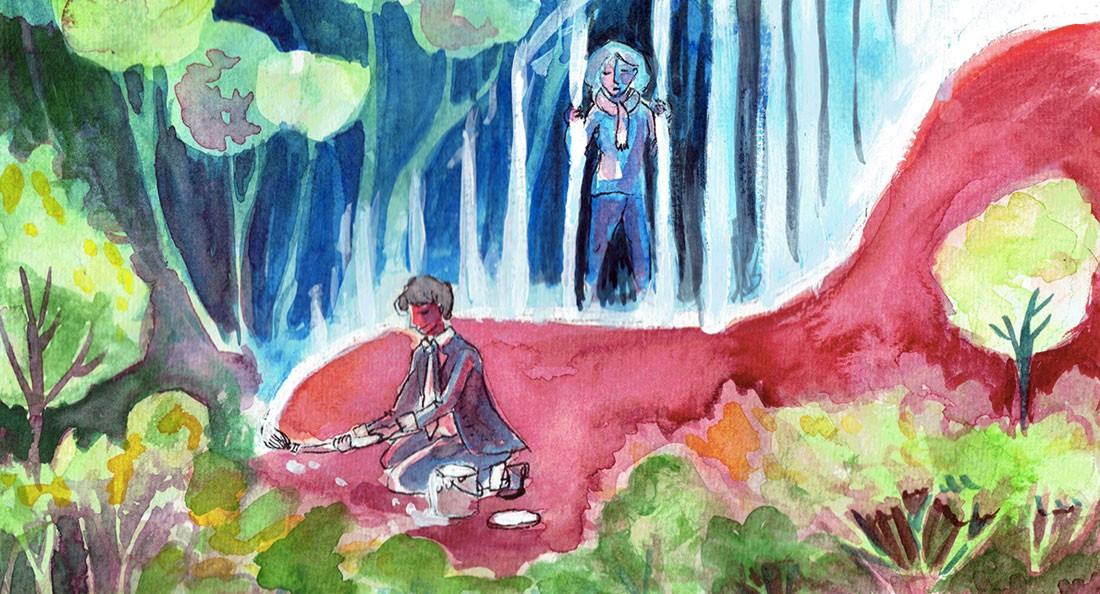Halfway to somewhere
Blurring the idea of the border
Refugee claims are a pressing political subject these days. With millions of people at risk of being displaced by rising sea levels within the next century, this is an issue that won’t go away anytime soon.
So much dialogue around refugee movement is centred around borders, from people entering the European Union through Morocco, to Trump’s insistence on building a border wall with Mexico, to people crossing the United States-Canada border into Manitoba to try and seek refugee status here.
In responses to this crisis, there’s been an overall fear of human migration, and an overwhelming call from Trump and far right media outlets such as Breitbart for tighter borders. Maybe this stems from a fear people have of the possibility of being displaced themselves, or maybe it stems from a place of more overt prejudice.
However, there is nothing natural about the concept of borders. Despite often being marked by physical barriers like rivers or mountains, the legal function of borders (and of citizenship) is entirely human-constructed.
Following this way of thinking, an important question begins to emerge: What moral responsibilities do we owe other human beings, and does this responsibility change depending on whether or not they are a citizen of our country?
It starts to sounds odd that the expectation is to care more about the lives of strangers who live within the borders of a specific nation, as opposed to strangers who don’t live within the borders of that nation.
While there appears to be a dip in people seeking refugee status in Canada from the United States in recent months, it’s relatively safe to suspect that refugee claimants are not going to disappear anytime soon.
Amidst calls to tighten borders, remember that the majority of people living in Canada are descended from recent migrants themselves.
At the very least, Canada should repeal the Safe Third Country Agreement, an agreement with the United States that allows Canada to turn away refugee claimants if they are coming from the U.S.
It’s time to acknowledge that many people in the U.S. have good reason to want to leave for their safety, and this agreement is a major barrier for refugees seeking sanctuary. Organizations like No One is Illegal have pushed this even further, petitioning for Winnipeg to become a sanctuary city for refugees.
Canada doesn’t have everything figured out, but if there are people who have gone so far as to seek refugee status in another country, they should be listened to.
If the questions raised about our responsibilities to others seeking refugee status are followed by real policy change like repealing the Safe Third Country Agreement, Canada will be much better prepared if the refugee crisis increases.
In a world that needs to learn how to adapt and change to new realities, building up borders and holding closed-minded ideas about nationalism will make opening dialogue about how to navigate a future environmentally-caused refugee crisis even harder.
By opening up our ideas about borders and thinking of refugees as people, rather than foreigners, we will be at a better place, not only for dealing with crisis scenarios, but also for working towards a more just society.
Jase Falk is a genderqueer student, artist and ex-Mennonite from Winnipeg.
Published in Volume 72, Number 16 of The Uniter (February 1, 2018)







